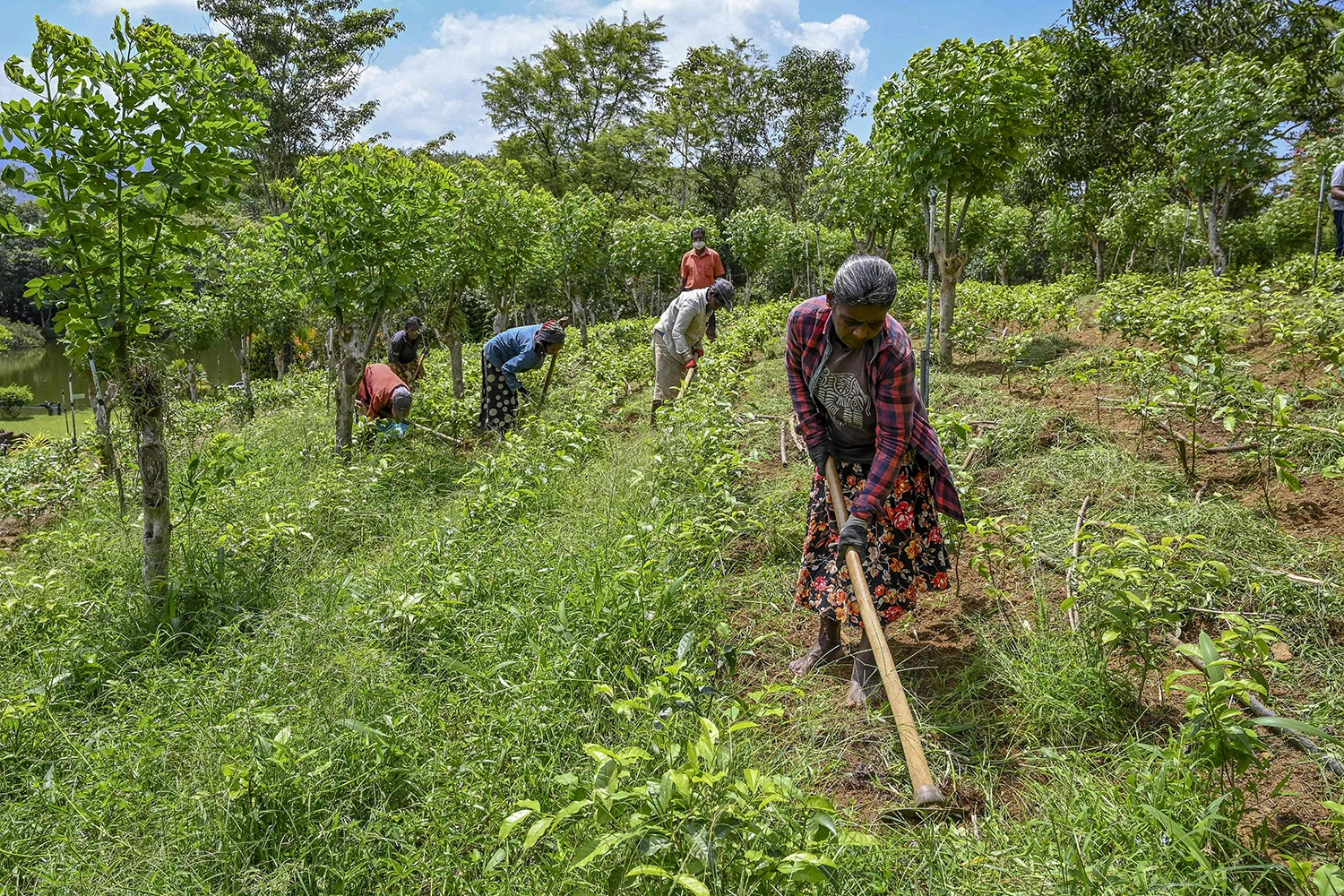Faced with a deepening economic and humanitarian crisis, Sri Lanka called off an ill-conceived national experiment in organic agriculture this winter. Sri Lankan President Gotabaya Rajapaksa promised in his 2019 election campaign to transition the country’s farmers to organic agriculture over a period of 10 years. Last April, Rajapaksa’s government made good on that promise, imposing a nationwide ban on the importation and use of synthetic fertilizers and pesticides and ordering the country’s 2 million farmers to go organic.
The result was brutal and swift. Against claims that organic methods can produce comparable yields to conventional farming, domestic rice production fell 20 percent in just the first six months. Sri Lanka, long self-sufficient in rice production, has been forced to import $450 million worth of rice even as domestic prices for this staple of the national diet surged by around 50 percent. The ban also devastated the nation’s tea crop, its primary export and source of foreign exchange.
This is the Green New Deal in real life. Read the whole thing.
UPDATE: Why Mobs Are Torching Sri Lanka Politicians’ Homes
A combination of Covid, energy price hikes and government-mandated organic farming brought a popular tourist spot to the brink of chaos.
Sri Lanka is back in the news—for all the wrong reasons. On Monday besieged Prime Minister Mahinda Rajapaksa resigned after weeks of protests, amid a cratering economy and violent clashes between government supporters and antigovernment protesters in the capital, Colombo.
At least eight people have died in the violence, and some 200 were injured. Rampaging mobs torched more than 50 houses, including the ancestral home of the Rajapaksa clan, a family that has dominated Sri Lankan politics for nearly two decades.
... last year the government forced the country’s roughly two million farmers to switch to organic farming. In April 2021, it banned synthetic fertilizers and pesticides. Production of rice, the country’s staple grain, fell by about 14% last year and prices surged by around 43%.
The switch also hurt Sri Lanka’s tea crop, its second biggest export after textiles and garments. Though the government began to reverse course in November, sizable damage was already done. Tea production in the first three months of 2022 fell 15% year on year, hitting its lowest level since 2009. The policy was a “farrago of magical thinking, technocratic hubris, ideological delusion, self-dealing, and sheer short sightedness,” wrote environmental experts Ted Nordhaus and Saloni Shah.
Economic security, even modern life, is not guaranteed. Environmental fantasies are bringing the American people fuel and food prices they can't afford, creating despair for a marginalized middle class. And ideological fantasies are creating children who are mutilating their bodies and destroying their minds leading to sterility and suicide. The damage these ideologies are causing are literally incalculable.

No comments:
Post a Comment